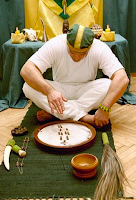The Minds True Power is Innocence

Kripal's mention of the concept of "the great forgetting" really struck me. My biggest fear has always been forgetting. Forgetting my friends or family, forgetting my past, even the simple idea of having a memory that I just can't remember terrifies me. I had never heard the term "the great forgetting", but the concept which Kripal describes is relatively familiar to me. The idea of society enforcing a belief onto people that forces them to forget a truth or identity through social structures we are taught to believe. "We do not think. We are thought." This idea of forgetting due to the engrained structure and beliefs of society made me think about stories of people remembering “past lives”. The concept of a past life is a fascinating belief that is ingrained in many religions and cultures, but the thought of remembering a past life is much stranger than just the idea of being reincarnated and to many people both of these are truly impossible e



